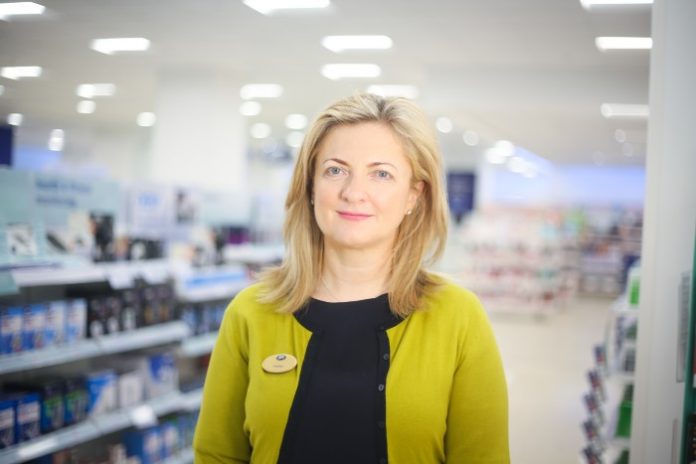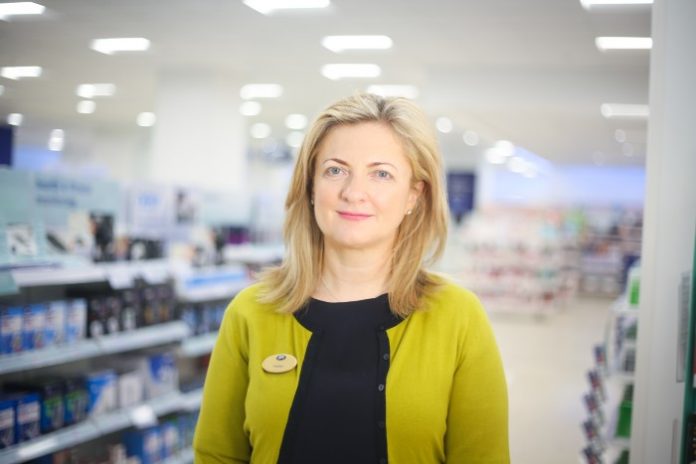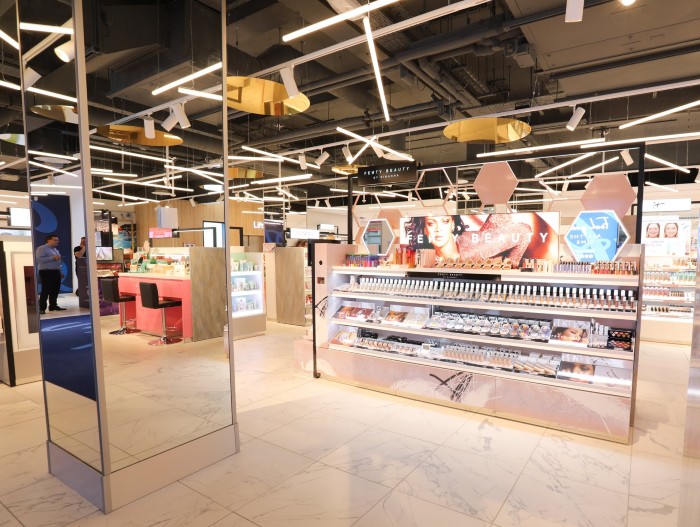

Helen Normoyle may be a self-confessed “people watcher”, but when your job is marketing director for health and beauty giant Boots, it can be a huge advantage.
Responsible for using consumer data to personalise a “spectacular shopping experience” for the customer, Normoyle regularly heads to Boots stores to meet customers and spend time in stores. She does this for a simple reason.
“Understanding customers starts from the shop floor,” she told Retail Gazette, in an interview that took place shortly before the coronavirus pandemic escalated in the UK.
While she boasts a vast career in marketing, the health and beauty sector was never on her radar. In fact, Normoyle was the chief marketing officer at furniture retailer DFS in 2012, a role which ingrained in her the importance of understanding customers.
“The great thing about working in retail, is that this is the people business, and if you’re interested in learning about people, there’s no other place to be,” Normoyle laughed.
Since joining Boots in 2017, Normoyle said the retail world has changed, with consumers wanting a more personalised, meaningful and convenient shopping experience than ever before.
Last year, Boots installed new-look beauty halls in 29 of its stores, removing traditional beauty counters and replacing them with open furniture, trend-driven zones, play stations, discovery areas and live demonstration zones.

Earlier this year, the health and beauty giant revealed plans to launch additional revamped beauty halls across 60 stores in the UK in a bid to become a more “accessible” place for customers.
Of course, whether this may still go ahead remains to be seen from Boots, especially in the advent of other retailers slashing marketing and discretionary expenditure or deferring roll-out and expansion plans to mitigate the financial impact of the coronavirus crisis.
Yet while the pandemic has changed the way the retail sector operates, Boots’ pharmacy business meant it was one of the few retailers classified as “essential” and could remain open during the nationwide lockdown. However, it temporarily closed its beauty and fragrance counters.
“Our focus at this time is on supplying communities with the healthcare, pharmacy and essential items that they need,” Boots UK managing director Seb James said this week.
When Retail Gazette spoke to Normoyle, she said relevance was a major driver for launching the beauty halls.
“We did an extensive amount of research in advance, to really establish what was important to our customers,” she said.
“We knew that we needed to modernise the Boots brand on several levels. If I step back and look at what we did in totality, we started off by looking at the brand visual identity.
“Understanding customers starts from the shop floor”
“We wanted Boots to express itself in many different ways and we wanted to inject more colour and give it a more contemporary look and feel.”
This is when Normoyle decided to change the retailer’s fonts.
“We extended the range of fonts and the range of colours that we use in our colour policies. We have this in our new beauty halls and in several what we call ‘stores of the future’,” she explained.
“We have one ‘store of the future’ in London and others around the country and one in the Republic of Ireland.”
Normoyle elaborated that she and her team deliberately changed the customer experience by putting beauty advisors behind counters.
“What we found was that customers are increasingly informing themselves about the new beauty trends, they’re going on YouTube, they’re getting tutorials on know how to apply different types of makeup, different types of types of contouring, and how to style their hair,” she said.
“We’ve made it easier for customers to access products directly. By opening up beauty halls and having beauty advisors who can provide advice on a cross brand basis, offers a much more contemporary way of engaging.
“We’ve given the brands we work with – including Huda Beauty and Fenty Beauty – more space to breed as well to really bring them to life.”
However, Normoyle said the success of the beauty halls wasn’t purely down to the actual products themselves. Instead, it was down to the environment and the engagement customers have with staff.
Another initiative Normoyle was proud of was digitising Boots’ Advantage Card – the loyalty scheme which she refers to as “a jewel in the crown for Boots” – in May last year.
The scheme has accumulated more than 17 million followers since its launch in 1997, and digitising it meant Normoyle could “harness multiple communication activities in a large scale to deliver mass personalisation”.
“Our loyalty scheme has always been really important to us, but I think even more so over the past few years,” she added.
“For Boots, the question is, how do you keep reinventing yourself?”
“The huge advantage that we have is the data that we have about our customers through the Advantage Card and the insights that we have about the people that shop with us.”
Collecting data means Normoyle and her team can track customers’ shopping patterns over many years, providing what she describes as “a fascinating set of data that enables Boots to see the products and the categories that grow and shrink in importance over a person’s life”.
While the Advantage Card has been accomplishing this since its launch, the digital-only launch was another step for Boots to attract a younger audience and ensure the retail giant remained relevant.
“We wanted to offer a fresh look, and by being more personalised, we’re making ourselves more relevant and useful to our customers,” Normoyle said.
In a bid to seek more information on Boots’ customers, Normoyle kicked off 2020 with a collaboration with Public Health England by launching an interactive questionnaire.
“The well-being quiz was a very evidence-based approach to asking customers simple questions on topics from eating and drinking habits, to smoking, daily stress and exercise,” she explained.
“Once customers complete the quiz, they can see which wellness journey they’re most recommended to focus on.
“We then follow up with them for a couple of months with an email every few weeks providing advice and tips.”
Normoyle said customer data has immensely helped Boots in the past. For example, its Christmas campaign Bootiques was produced after the marketing team spotted a trend in how people are shopping.
“We’re buying for fewer people, but we’re possibly spending a bit more. We really wanted to show customers that we get them,” Normoyle explained.
“Finding the right gift can sometimes be a real dilemma and it can add to stress levels. So Bootique was a step towards curating gifts for Christmas in a really different way.”
Although Normoyle appears to be handling customer data to the benefit of the business, she told Retail Gazette that one of the biggest challenges she faced was having to keep up with “how quickly the world is changing”.
“There’s the challenge of meeting customers’ needs. The world is more demanding, we all want more,” she said.
There’s also the ongoing challenge of staying relevant as well as being differentiated, because brand love and loyalty were not enough.
“We’ve all seen major retailers, that were once much loved, erode over time because they lost relevance,” she reflected.
“So for Boots – like all other retailers – the question is, how do you keep reinventing yourself and changing with your customers?”
She added that Boots was in for “a very exciting decade”.
“We will continue to trade well because more people focus on their personal wellbeing, people are thinking more holistically about wellbeing in terms of physical and mental health, and the way that incorporates beauty,” she said.
“Boots is really well placed in the marketplace. We’re one of the most loved and most trusted brands in the UK.
“It’s a real privilege to work for a brand that’s been around for 170 years, and still going strong.”
Click here to sign up to Retail Gazette’s free daily email newsletter

